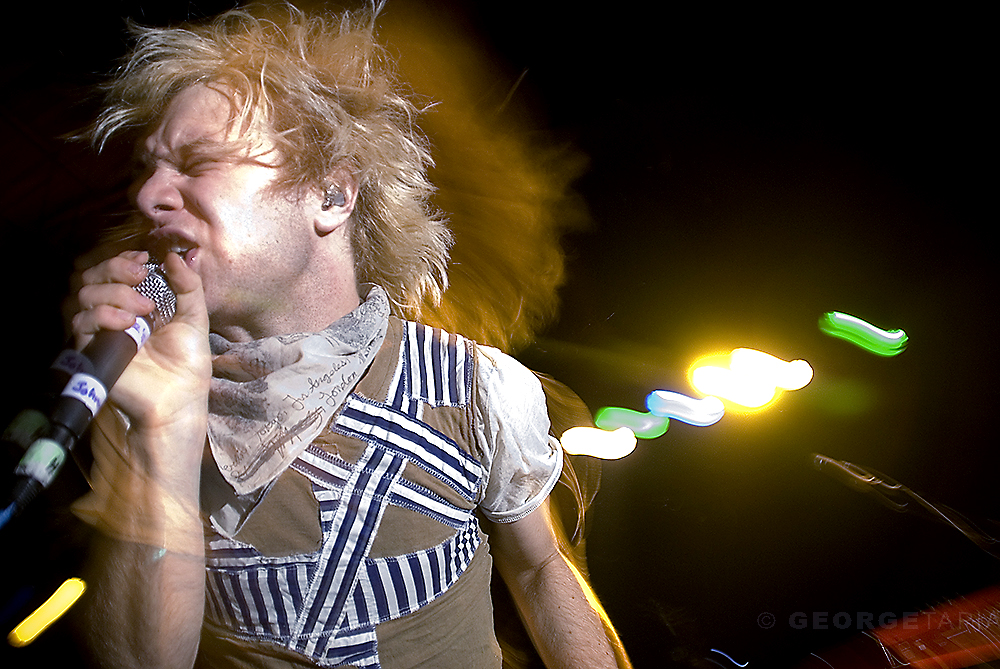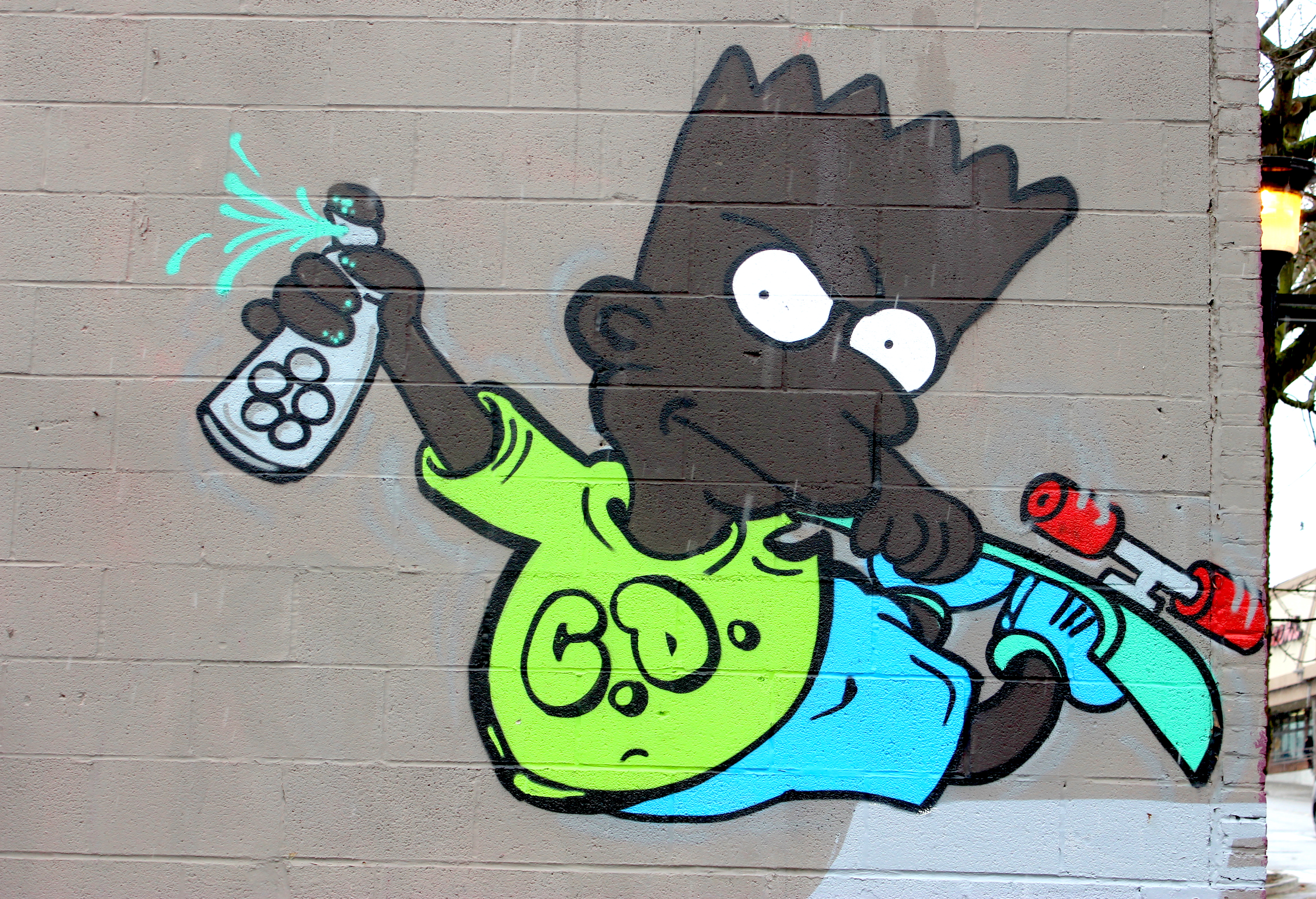Johnny Whitney is biologically male, but the power of his bloodcurdling shriek as frontman of the recently reunited post-hardcore band the Blood Brothers is something else entirely.
“One of the things I loved about Johnny’s voice; he was taking some fairly feminine qualities and putting them in a very violent context,” co-vocalist Jordan Blilie said in a recent post-reunion interview with Vice. “It was off-putting to a lot of people and it made people uncomfortable, and I loved that about it.”
That quality is what has always made the Blood Brothers such a fascinating band—a group of young men who existed in the hardcore/metal world and who willingly flipped it upside down by exhibiting themselves as violently powerful feminine entities.
The band broke up in 2007, but recently reunited when L.A.’s FYF Fest offered them a spot in the lineup. “For me personally, it’s the opportunity to reconnect with the guys in the band and play those songs again,” Blilie says.
“The Blood Brothers make music that will save us all,” says Henry Rollins. “What a great fucking racket these guys make.”
For fans, it’s a welcome comeback. During their heyday, the Blood Brothers walked the gender line ingeniously. In the song “Love Rhymes With Hideous Car Wreck,” one second Whitney coos “love love love love love love” like a sweet schoolgirl, then suddenly the next he’s transformed into a possessed hag, bellowing bloody murder and flailing about limp-wristed while Blilie chortles out a refrain about sirens sounding in someone’s skull. Even though the band spit curses on an ever-burning apocalyptic world, its singers’ intertwined androgynous fury felt like a benediction—a righteous, genderless rage that made them all the more terrifying and hypnotic than their hardline male counterparts. Squealing about your “First Kiss at the Public Execution” is far more chilling than a band like Slayer painting cartoonish pictures about the skies “Raining Blood” or Metallica conjuring the sandman. Whitney and Blilie’s frightening eschatological visions seemed channeled rather than contrived, thanks largely in part to those otherworldly voices somehow being summoned out of small, quaking male bodies.
Seattleites have long gleefully played with gender. Nell Pickerell, a woman who dressed as a man in turn-of-the-previous-century Seattle, was a media magnet who publicly flirted with women and flouted the law in her frontiersy adventures. She became a hero for street kids, ones who didn’t fit into the conservative moralism of the early 20th century. Pickerell acted as a drastic and highly visible alternative, an outlaw who broke with society and rose above it by openly flouting its most basic rules about appearance and behavior. Kurt Cobain often performed wearing a dress, filling a similar void in the ’90s for kids who felt boxed in by classism and sexism in a culture rapidly becoming more and more commercialized.
But the Blood Brothers’ subversive gender juxtaposition came at an especially crucial crossroads—a time when George W. Bush was plunging the country into war and renewing xenophobia with devastating results. “Devastator,” the final song on Crimes, a conceptual album written in reaction to Bush’s 2004 re-election, is also one of its most chilling. A sort of twisted, dark hymn, it plays ingeniously with the band’s dual nature, opening not with its trademark chaos but with an eerie quiet hum. The near-silence gives Whitney’s epicene banshee wail crushing weight. He screeches:
Neon black tanks grope the skyline Neon black cocks rot into poison wine Neon black flowers on the mass grave Neon black corpses, stacked, eclipse the horizon Neon black whip, war gang hiss, while Devastator sips from the crystal chalice Neon black lemonade drop drips from his grin crammed with cool charm, culture, and opulence
Then suddenly, complete and utter havoc breaks loose as the guitarmy deafeningly storms in and Blilie shouts, “Everybody needs a little devastation!”
“I thought the collective dissent of our generation would bring about positive change,” Blilie once said of Crimes. “When that didn’t happen, I felt like the bottom had fallen out.”
In Plato’s Symposium, Aristophanes says that men and women were originally one mighty spherical creature. When they threatened Zeus’ power, he cleaved them in two with a thunderbolt, forever weakening them and leaving the resulting halves constantly in search of each other.
For unempowered teenagers growing up in the early aughts—hapless witnesses to the horror of 9/11, followed by the misguided “War on Terror”—the Blood Brothers offered a fleeting vision of Plato’s awe-inducing androgyne: a primitive source of terrifying, god-threatening power derived from the very adolescent bodies many of its fans felt trapped in. When the band broke up in 2007, a void was felt. As current events seem more and more to resemble the band’s apocalyptic vision, this reunion is not only more than welcome—it’s an apt soundtrack for the end times.
Few people put it as succinctly as Henry Rollins did before the band’s dizzying performance of “Set Fire to the Face on Fire” on The Henry Rollins Show. “The Blood Brothers make music that will save us all,” the beefy, broad-armed man proclaimed. “What a great fucking racket these guys make.” The Blood Brothers with Naomi Punk. Showbox at the Market, 1426 First Ave., 628-3151, showboxpresents.com. $20 adv./$22 DOS. All ages. 9 p.m. Fri., Aug. 22.
ksears@seattleweekly.com








